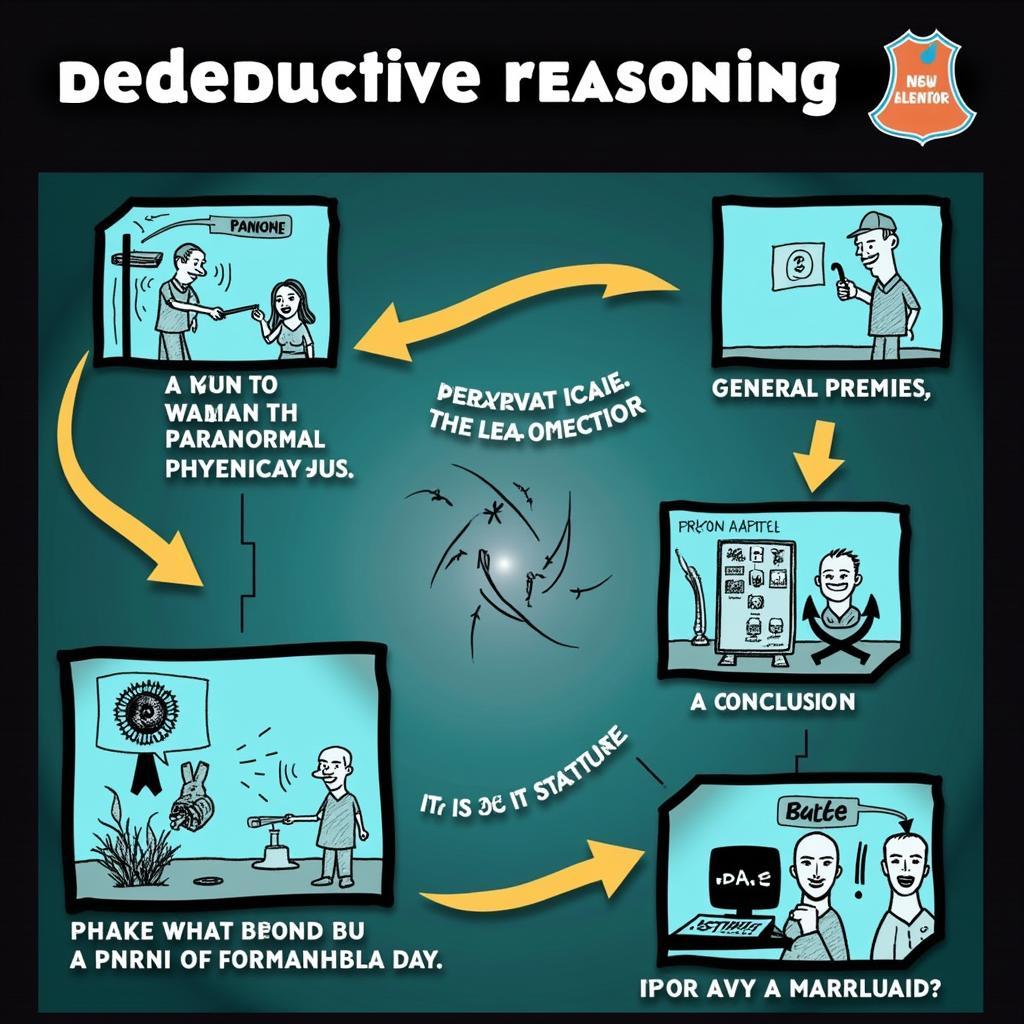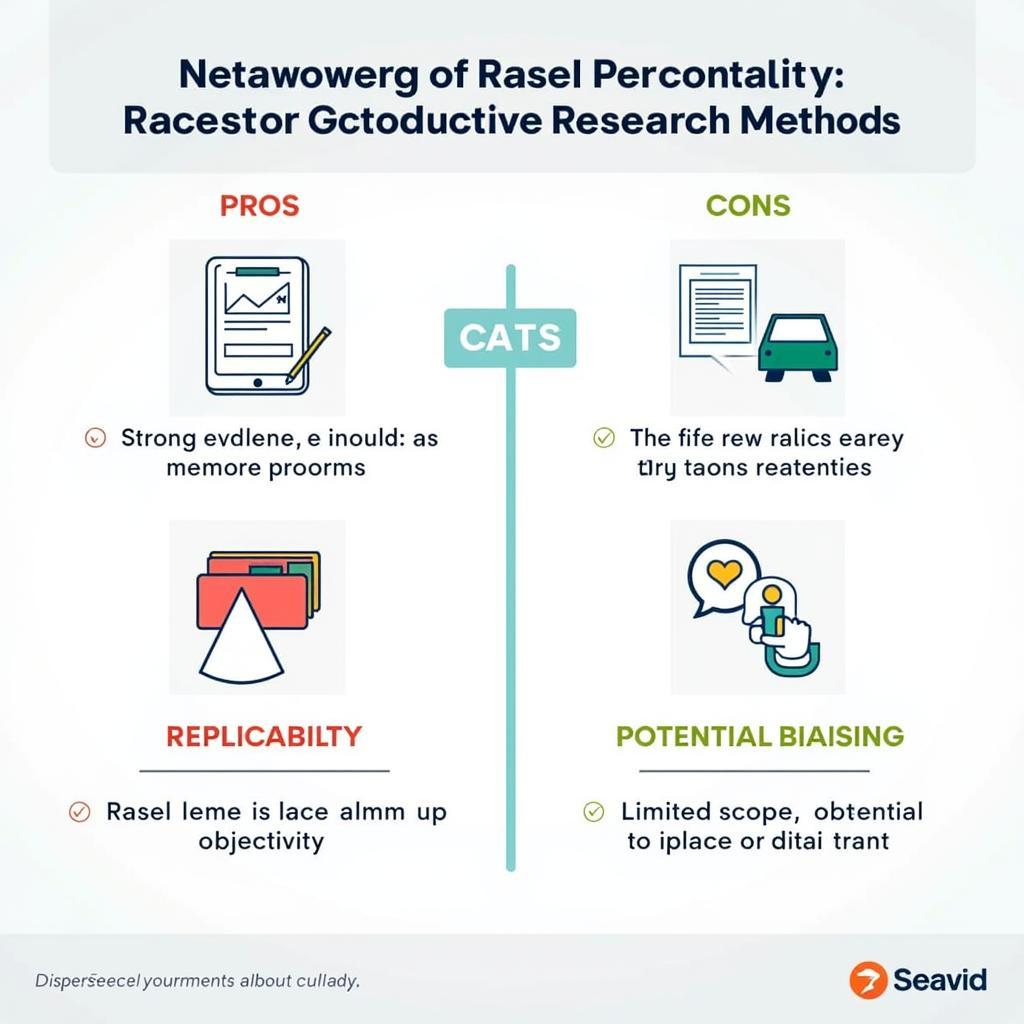Deductive research is a research approach that starts with a theory or hypothesis and then uses evidence to test and confirm (or refute) that initial idea. Think of it like a top-down approach: you start at the top with a general idea and work your way down to specific observations. This stands in contrast to inductive research, which builds theories from the ground up based on gathered data.
Unraveling the Enigma of Deductive Reasoning
At the heart of deductive research lies deductive reasoning. It’s a logical process where you draw specific conclusions from general premises. Let’s say we believe that all ghosts are transparent (our general premise). If we then encounter a ghost that is indeed see-through, we’ve used deductive reasoning to confirm our initial belief.
However, the key here is that deductive research requires strong, well-established premises to work. If our starting premise about ghosts is flawed, our conclusions won’t hold any weight.
 Deductive Reasoning in Paranormal Research
Deductive Reasoning in Paranormal Research
When to Call Upon Deductive Research
Deductive research proves particularly useful when:
- Testing existing theories: Do ghosts really avoid salt circles? Deductive research helps put those long-held beliefs to the test.
- Predicting phenomena: If our ghost theory is sound, deductive research could help us predict where spectral apparitions might appear.
- Strengthening existing knowledge: By confirming (or refuting) hypotheses, deductive research solidifies our understanding of the paranormal.
The Steps of a Deductive Investigation
A typical deductive research project in our field might follow these steps:
- Start with a Theory: This could be an existing theory about, for example, the origins of poltergeist activity.
- Formulate a Hypothesis: A testable statement like, “Poltergeist activity is more prevalent in homes with teenagers.”
- Collect Data: This might involve interviews, observations, or even technical readings in the supposedly haunted location.
- Analyze the Findings: Do the data support or contradict the hypothesis about teenagers and poltergeists?
- Draw Conclusions: Based on the analysis, we either confirm, modify, or reject our initial hypothesis.
The Pros and Cons of the Deductive Approach
Like any good ghost hunt, deductive research has its strengths and weaknesses:
Advantages:
- Provides strong evidence: When premises are solid, deductive research offers compelling support for theories.
- Replicable: The structured nature of this method makes it easy for other researchers to replicate studies.
- Objective: Deductive research emphasizes objectivity, minimizing the influence of researcher bias.
 Advantages and Disadvantages of Deductive Research in Paranormal Studies
Advantages and Disadvantages of Deductive Research in Paranormal Studies
Disadvantages:
- Relies on existing knowledge: Deductive research is only as good as the initial theories it’s based on.
- Limited Scope: This approach might not be suitable for exploring completely new phenomena where established theories are lacking.
Deductive vs. Inductive Research: Two Sides of the Paranormal Coin
While deductive research takes a top-down approach, inductive research flips the script. It starts with observations and then works its way up to broader generalizations and theories.
Think of it like investigating a haunting. A deductive approach might test whether reported cold spots align with known air currents. In contrast, an inductive approach might involve analyzing EVP recordings to identify patterns and potentially uncover new insights into how ghosts communicate.
To learn more about the differences between these two research approaches, check out our article on deductive vs inductive research.
Conclusion
Deductive research serves as a powerful tool in our quest to understand the paranormal. By rigorously testing theories and hypotheses, it helps us separate fact from fiction in the world of spectral apparitions, unexplained phenomena, and things that go bump in the night. While it might not hold all the answers, deductive research provides a structured framework for exploring the mysteries that lie beyond the veil of the known.
FAQ
1. Can deductive research be used to prove the existence of ghosts?
While deductive research can provide evidence to support existing theories about ghosts, it’s unlikely to definitively “prove” their existence. The paranormal, by its very nature, often eludes concrete proof.
2. Is deductive research always the best approach for paranormal investigations?
Not necessarily. Inductive research, with its focus on observation and pattern recognition, can be equally valuable, especially when dealing with new or poorly understood phenomena.
3. How can I learn more about applying deductive research to my own paranormal investigations?
Consider joining a local paranormal research group or taking online courses that focus on research methodologies in the context of paranormal studies.
4. Are there any examples of famous paranormal researchers who used deductive reasoning?
Many early ghost hunters, like Harry Price, employed aspects of deductive reasoning, though they may not have used the term explicitly. They often started with established beliefs about ghosts and then sought evidence to support those beliefs.
5. What are some other research methods used in paranormal investigations?
Besides deductive and inductive research, paranormal investigators utilize a variety of methods, including:
- Qualitative research, often used to analyze interview data or experiences shared by witnesses. To learn more about this research method, see our article on inductive reasoning qualitative research.
- Data coding techniques, used to identify patterns and themes in qualitative data. Explore our articles on coding data for qualitative research and types of coding for qualitative research to learn more about this approach.
Do you have other questions or need help with your own paranormal research?
Contact us at:
Phone: 0904826292
Email: research@gmail.com
Or visit us at:
Paranormal Research
No. 31, Alley 142/7
P. Phú Viên, Bồ Đề
Long Biên, Hà Nội
Vietnam
We are available 24/7 to assist you.
For further insights into different research themes in paranormal studies, take a look at our article on examples of themes in qualitative research.